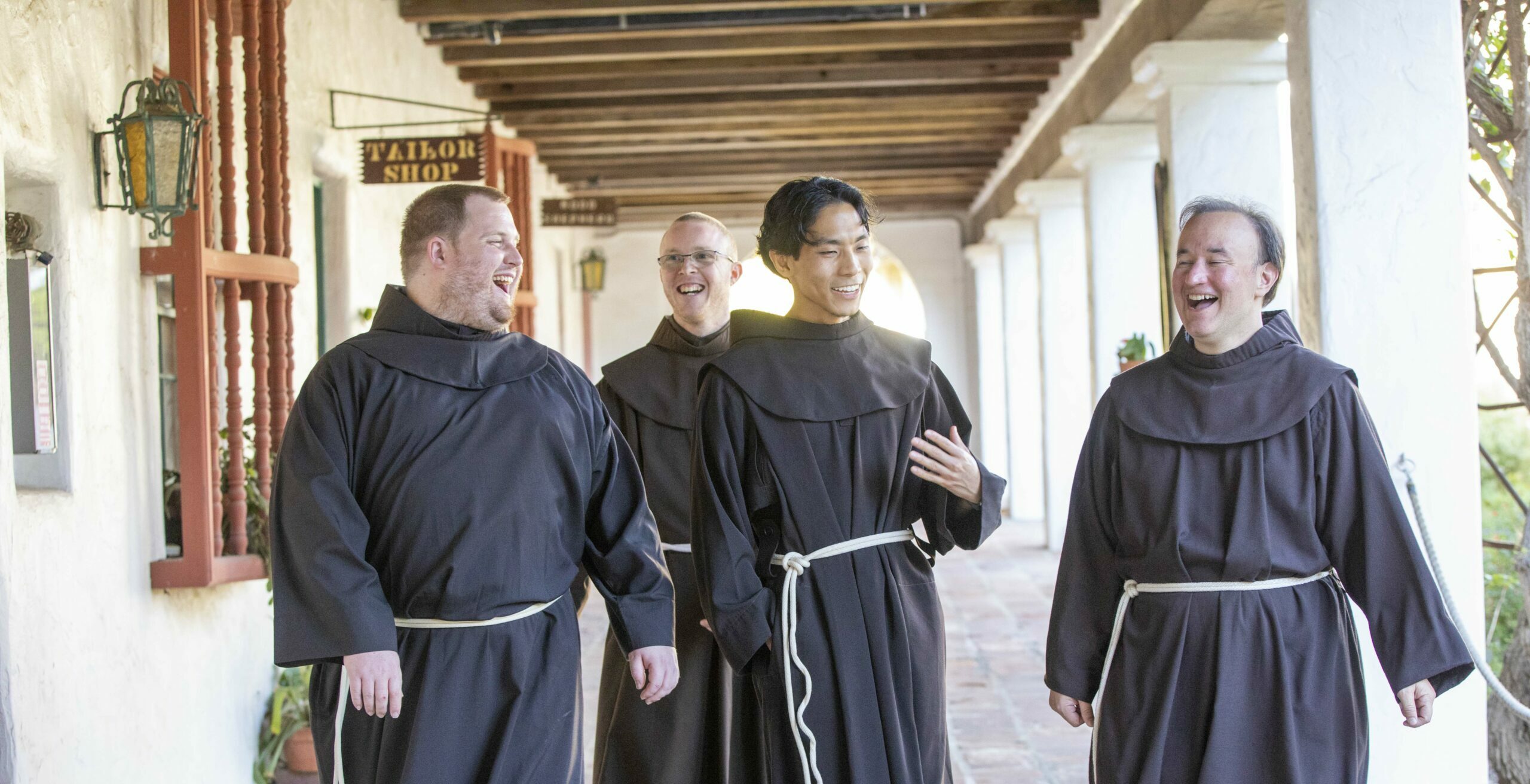Saint Anthony was born in Lisbon, Portugal, on August 12, 1195. In baptism he received the name Ferdinand. His father was Martin de Bouillon of the renowned Bouillon family of Crusader fame. His mother was Teresa de Tavera, of an ancient and noble Portuguese line. After splendid training at home, Ferdinand was sent at the age of ten to the cathedral school conducted under the care of the clergy. When fifteen, he consecrated himself to the religious life in the convent of the Canons Regular of Saint Augustine at Lisbon. He was transferred thence to Holy Cross Monastery at Coimbra, where he achieved a great name for both sanctity and learning. It was here at Holy Cross that the young Canon Regular received his vocation to the Franciscan Order. When he saw the remains of the first five Franciscan martyrs of Morocco, which were brought to Coimbra for interment, Ferdinand was inflamed with an ardent desire for similar martyrdom and asked permission to join the sons of Saint Francis. In July of 1220 the new Franciscan received, with the habit of the Order, the name of Anthony, that name by which he is known and loved throughout the world. Four months later, at his own urgent request, Anthony was sent to Morocco, that he too might share in the honors of martyrdom. But God had decreed otherwise, and by means of sickness and shipwreck brought the martyr in desire to the land he was to glorify by his holy and miraculous life. For ten years Anthony traversed Italy and the southern part of France, going wherever obedience called him, to preach the Gospel of Christ with untiring zeal. He so successfully opposed the then prevailing heresies that he became known to all as the “Hammer of Heretics.” Because of his knowledge of the Sacred Scriptures, he was greeted by Pope Gregory IX as the ”Living Ark of the Testament.” Anthony’s fame was at its zenith when, in 1228, he was sent to Padua. Here he spent the last few years of his life, in the city with which his name has been associated for seven centuries. Death came to the Saint on Friday, June 13, 1231, in his thirty-sixth year, in the little hospital adjoining the convent of the Poor Clares of Arcella, outside the city gates of Padua. Fearing a dispute between popular factions for possession of the treasured body of the Saint, the Friars tried to keep the news of his death from the people, but the children ran through the streets of the city, crying aloud: “The Saint is dead! Our Father, Saint Anthony, is dead!” He was canonized by Pope Gregory IX on May 30, 1232, less than a year after his death. In the year 1263 the tomb of the Saint was opened in order that his blessed remains might be transferred to the new sanctuary built in his honor. The marvel was then discovered that, though his flesh had fallen to dust, his tongue remained fresh and ruddy like that of a living person. It was on this occasion that Saint Bonaventure, then Minister General of the Franciscan Order, taking the tongue of the Saint in his hands, uttered the words which now constitute the antiphon preceding the Miraculous Responsory: “O blessed that never ceased to praise God and always taught others to bless Him, now we plainly see how precious thou art in His sight!”
St. Anthony's Guild
The Guild and its members serve God by supporting the Franciscans Friars in their work with the poor, the alienated, the homeless and the suffering. St. Anthony’s Guild is always striving to be an instrument of peace and an example of God’s love to all people.


